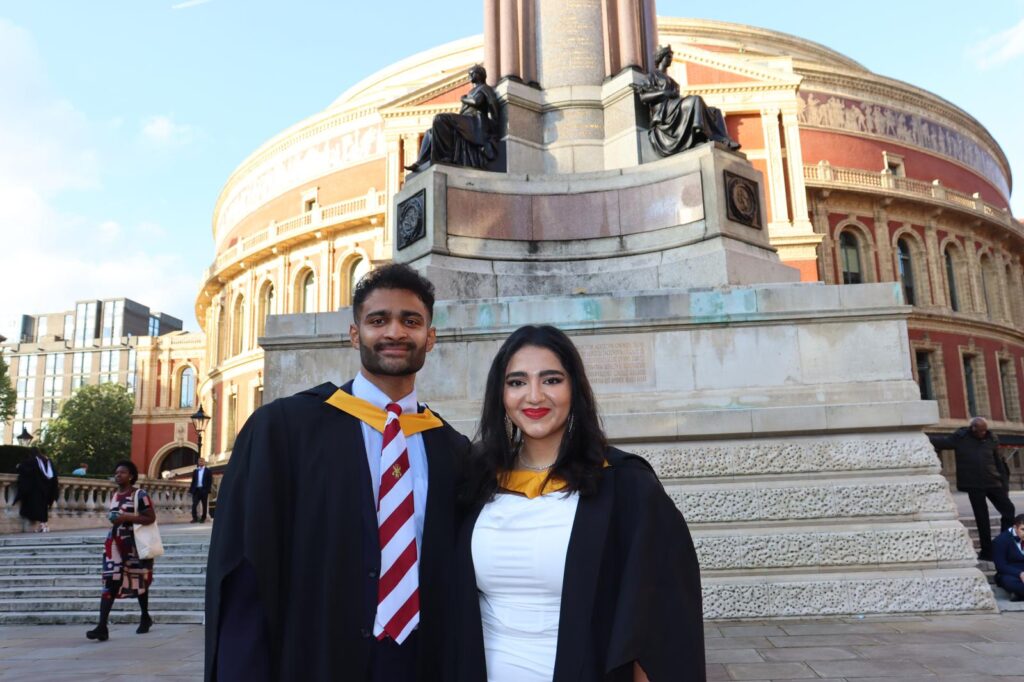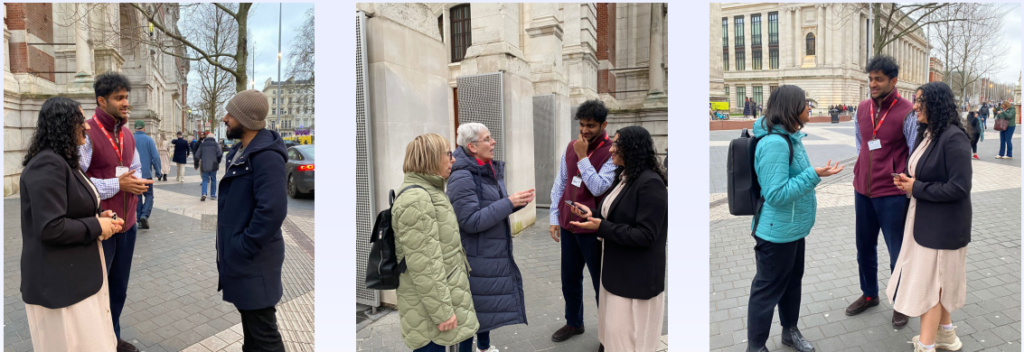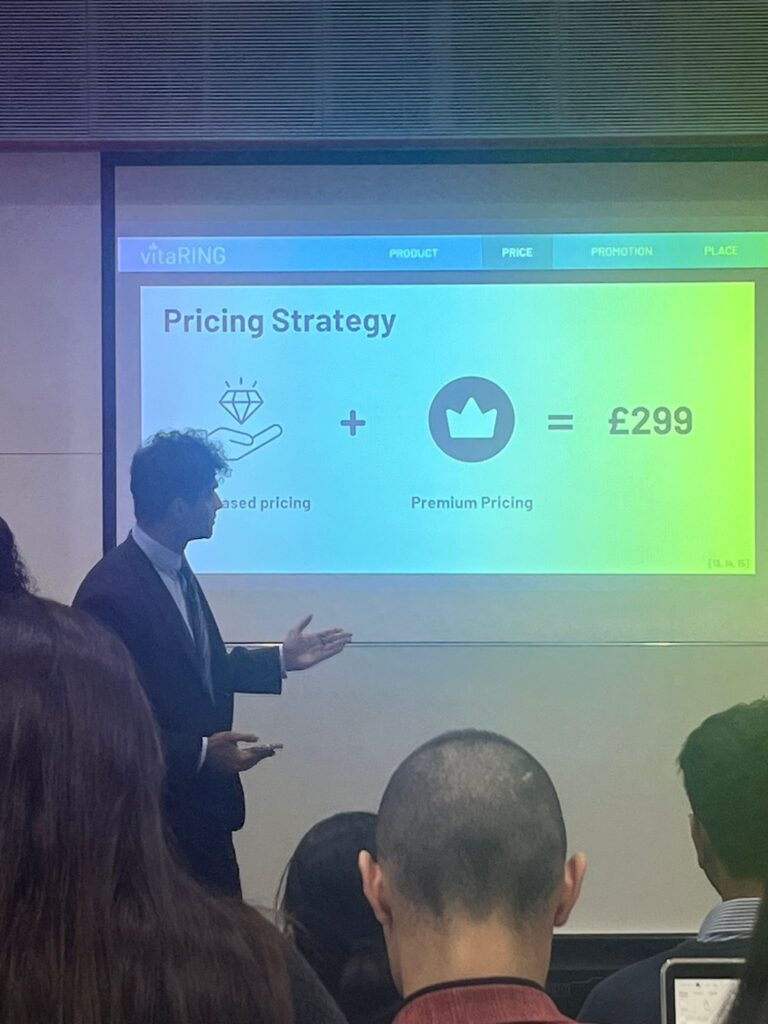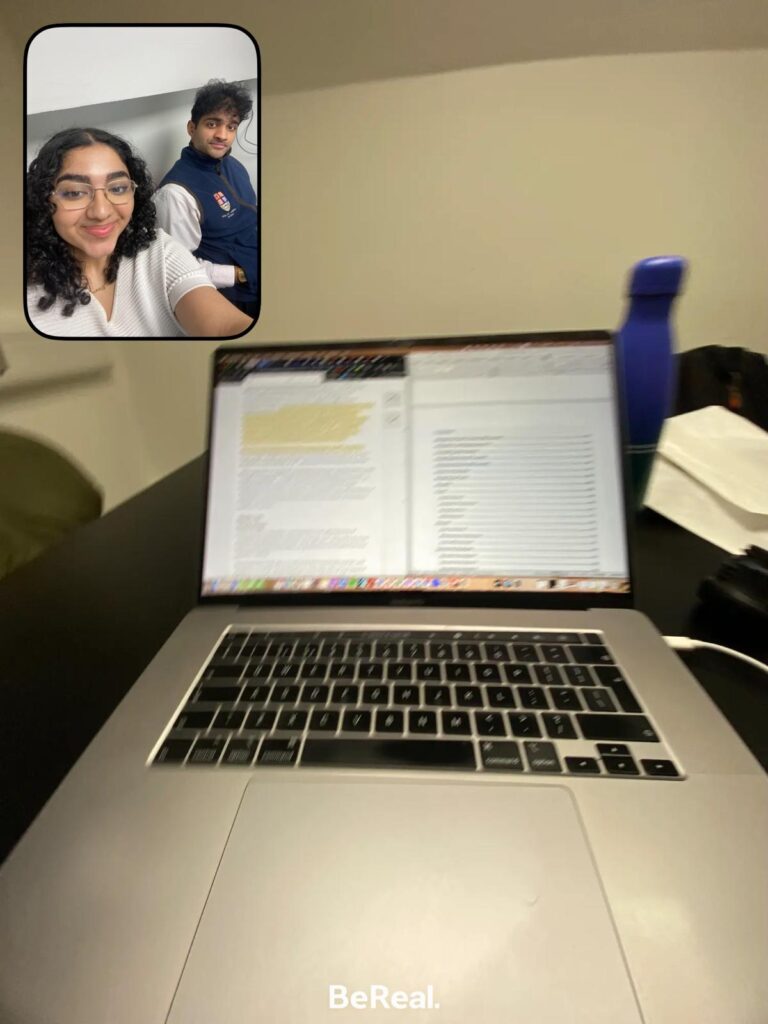This blog’s purpose is to draw awareness to a fantastic intercalation available to medical students across the UK. As you may know, the UKFPO no longer give additional points for previous degrees, intercalated degrees, or publications. However the value of this intercalation goes well beyond this, and I’ll explain how!
The Management with Medical Sciences iBSc at Imperial College London explores the intersection of areas such as Business, Leadership, Management, Entrepreneurship, Marketing, MedTech with Healthcare. It’s a fantastic opportunity to learn skills that aren’t touched on at all in the medical curriculum, skills that are exceedingly important for doctors in the contemporary healthcare landscape. Below I outline what we did during the year, followed by the (many) benefits and (relatively few) negatives of the course!

📚What you do during the year?:
📊Accounting
This module equipped us with the foundational knowledge and skills necessary to understand and produce the ‘language’ of business: financial accounts.
We focused on two important dimensions – management accounting and financial accounting. Management accounting is essential for analysing internal cash flows and supporting internal decision-making processes, while financial accounting is crucial for producing standardised accounts intended for external stakeholders, such as government agencies, investors, and the public.
It is crucial to understand accounting to make informed decisions, evaluate business performance, and communicate effectively with stakeholders.
🤝Organisational Behaviour and Human Resource Management
This was a really interesting module where we explored how understanding human psychology can enhance our negotiation skills, optimise communication, foster a positive organisational culture, and boost team performance. Understanding our personality types, learning how to interact effectively, and mastering negotiation strategies provided us with practical skills that we can bring to our teams on the wards—or any team environment, for that matter.
🌍Global Strategy
This module provided us with the knowledge and tools needed to strategically expand a company both domestically and internationally. We explored frameworks for analysing new markets, assessing competitive landscapes, and understanding cultural and regulatory factors that influence global business operations. We had to produce an in-depth globalisation strategy report for a real company of our choosing – putting everything we learnt into a real-life application.
Fun fact: in our year, one group’s report outlined their strategy on globalising Tesco to Africa – too bold?!?
🌱Sustainable Business
Sustainable Business focused not only on ensuring a company’s long-term viability and competitive edge but also on promoting eco-friendly and green practices. We explored various frameworks, strategic analysis tools, and real-life case studies to deepen our understanding and experience. As part of the module, we produced a sustainability report on a real-life company with an accompanying website page.
The area I enjoyed most was ‘change management‘—learning how to effectively lead and implement change within an organisation. I found this particularly valuable, as it provided practical, actionable methods for driving successful transformation – something we so desperately need within the NHS.
🏥Managing Healthcare Organisations
MHCO was a module that really dug into how the NHS started, how it has evolved, what it is now, and how it needs to change to meet the ever evolving healthcare needs of the population. We had the privilege of hearing from high-achieving speakers with first-hand experience in driving change within the NHS. Their insights, knowledge, and proposals for reform provided us with valuable perspectives on transforming healthcare.
We were tasked with developing a strategic report proposing a realistic change that could enhance patient outcomes while conserving resources for the NHS. This module gave us a deep understanding of our healthcare system and the tools we can use to improve it. Whereas before I would have been hopeless, I now feel really equipped with the knowledge and skills necessary to actively advocate for positive change.
💻Health Informatics
This module, again, had impressive guest speakers that helped us explore how digital transformation can aid the NHS in many different and important ways. For this module, we were assessed on a live debate and our ability to make a functioning medical chatbot using simple coding (Python).
💸Health Economics
Here we learnt how resources can be allocated to maximise health outcomes efficiently and equitably. We answered questions such as: What’s the optimal number of GP’s to have in a practice? How does supply and demand effect the price we can charge for goods? We also learned how to carry out economic evaluations, testing if X or Y is the more worthwhile investment by comparing costs and expected benefits. In fact, the work you produce must tackle an area that hasn’t been investigated, thus it can be easily pushed for publication!
🚀Entrepreneurship
This was one of the best modules because it gives you the skills and knowledge to really be able to go out and start a business, especially in today’s internet-driven world, where industries are evolving rapidly and customers are more accessible than ever. In fact, our project was to create an innovation that would find a real-life gap in the market. Key areas covered involved finding problem-solution fit and product-market fit, and utilising various startup frameworks. Yasmin and I were in the same group for this module, where we came up with the initial concept that eventually became “More than Medics.” As we learnt more, and consulted advice from experts in the field, our idea grew and pivoted until it became what it is today. However, initially it started out as “Research Bridge”…

📈Marketing
This was a really fun module but also tremendously useful. We explored evidence-based principles behind various marketing tactics and strategies, learning how to leverage human psychology to make our products and services more appealing to potential customers. It was really interesting but also highly practical—marketing is something we’ll all engage with in some form, and this module taught us how to present ourselves and our ideas in the best possible light.
The coursework for this module was really fun. We developed a (fictitious) product to address a real market gap, similar to our work in entrepreneurship, but this time the focus was on building a strong marketing strategy. Our task was to create a one-minute video ad, using psychological marketing principles to make an impact. Alongside the ad, we pitched our marketing strategy to assessors, where we explained how we implemented various marketing principles to capture our target market’s attention. It was really fun going out in London doing market research just like on “The Apprentice”…

🔬Research Methods and Practice
This module taught us how to carry out research effectively, whether it was qualitative or quantitative. While it wasn’t always the most stimulating for me personally, it did provide an excellent foundation for developing our dissertation, and ultimately, it has empowered me to be able to effectively carry out any future research.
We learnt how to carry out qualitative research, conduct interviews, aggregate ideas and themes from these interviews, and analyse these themes using “Nvivo” to learn something new about the world. In quantitative methods we used “R studio” to analyse data sets, run regressions and test hypotheses in a rigorous and unbiased way. This was really difficult to get my head around, but a really useful skill to have in the arsenal going forwards.
📑Final Dissertation
Our final project was a group dissertation involving extensive primary research, with each group studying a different field. My group’s dissertation examined whether Generative AI is having a positive impact on clinicians in the UK. This was a substantial undertaking—241 pages of hard work! We had to essentially create a full research paper: Introduction, Aims/Objectives, Literature Review, Methodology, Data Collection Methods (both Quantitative and Qualitative), Results, Discussion, Limitations, Future Scope, and Conclusions.
Even with 5-6 members per team, the workload was immense. However, looking back, it was invaluable. I now feel confident in conducting both quantitative and qualitative research from start to finish—an experience we rarely get in medical school.

🌟Benefits
- 👩🏫World-Class Lecturers – Our lecturers were high achievers in their respective fields, and all very much still actively involved in their industry.
- 🤝Teamwork experience – It’s drummed into us at medical school that teamwork is everything. But tell me this, when have you actually needed to co-create something or work together in your medical degree? For me, the answer is almost never. We’re assessed solely on individual performance, yet as we know in the clinical environment, no patient is treated by just one professional; it takes a whole team to achieve the best outcome. In this iBSc, most modules included a group project component, which I loved. I experienced the camaraderie of late nights working together and the frustrations when group issues inevitably arose. Through these challenges, I learnt so many lessons: recognising and leveraging individual strengths, reading the nuances of group dynamics, practicing tact, and knowing when to step up or let others take the lead. I experienced the good, the bad and the truly ugly, but have come out of it much more aware of how to deal with situations we will inevitably face as doctors. Working with others made me understand my strengths, but also my weaknesses. In many ways, the biggest takeaway for me was that I learnt so much more about myself. How I change when met with multiple deadlines, my weaknesses when working with a team, and how I size up when challenged by a variety of skills/tasks. These are experiences and learning points that I feel medical school, with its individual-focused assessments, rarely offers. Almost any job we take on in the future will require teamwork, and this iBSc has really equipped me for that.
- 🔍Evidence-based learning – it may seem obvious, but I was really impressed that throughout all the modules, concepts and theories were backed up by experiments and research, proving their authenticity. For example, our marketing lecturer was very much involved in research himself and in fact, one of the theories we learnt was substantiated by his own recent paper!
- 🛠️Highly Practical – One aspect I appreciated was that we explored fresh, contemporary ideas and theories. This course was anything but a history lesson—it was forward-thinking, focusing on the latest and most effective ways to make an impact now. I’ve noticed this across Imperial generally as well; both students and staff are driven by a proactive approach to innovation and change, consistently looking ahead rather than responding to the past.
- 📖Real-life case studies – We examined recent real-world case studies of companies, analysing what they did well and where they could have improved. This approach gave us valuable insights and lessons typically gained through hands-on experience—all without actually working in those companies. It contextualised theories and concepts in a practical setting, which has boosted my confidence in applying them myself.
- 💼Useful Skills – We learnt a tremendous amount of raw skills that are all highly applicable to any role we may have in the future. Everything from acting, video editing and graphic design to rigorous academic research and formal pitching – this course needed it all!
- 🎓Set Yourself Apart – This is the only Management iBSc in the country, offering a unique qualification that sets you apart from other medical students and doctors—especially when pursuing roles in management or business.
- 🌆Experience London – As someone who’s never lived or studied in London, it was truly a pleasure. Many interesting events and opportunities take place in London, so it’s really nice being able to easily access them if they take my fancy. Whether its for “business or pleasure” – the city really has everything you could want.
- 🌠Imperial’s Opportunities – Imperial routinely has events and talks from truly inspiring individuals and organisations who are at the forefront of leading change. I felt privileged to be able to listen to and learn from these highly impressive people. Furthermore, Imperial has its very own “Enterprise Labs” which is space where you can nurture and grow your idea. Imperial also hosts major in-house entrepreneurship competitions, offering a valuable platform to develop and advance your own ideas.
- ❤️Rediscover the Privilege of Medicine – it was really nice to take my mind off of clinical medicine for a year and apply it to something completely different. Coming back to Medicine now, I’ve come to realise a newly found appreciation for what we do as medics. I firmly believe real positive impact can be made through business, but it can never quite compare to the satisfaction and personal impact you can achieve in treating patients. Intercalating has allowed me to take a step back, see our vocation through a new lens, and appreciate what a privilege it is to be a medic.
- 🌐Unlock your Potential – this was the biggest takeaway of the year for me. Coming to Imperial, being surrounded by forward-thinking people whilst learning from world-leading innovators really motivated me to create impact myself. On a more personal note, my time there helped me believe in myself and my abilities, and removed the metaphorical psychological barrier I had put on my potential. I believe, to some extent at least, we all play-down our capabilities and have a mental barrier stopping us from pushing for our hopes and dreams. Whilst it’s always important to be pragmatic, my year in London helped me unchain the proverbial shackles of my own psyche and pushed me to think more positively in all that I do.

❗Negatives
Whilst the pros far outweigh the cons, there are a few:
- 💸High cost of living – London is expensive – rent, food, transport, it all adds up unfortunately.
- However, if you can find a way to afford it, what you get in return is worth the investment!
- 👫New place, New people – it was a big change and quite daunting for me going in without knowing anyone.
- But no regrets! Sometimes a change is necessary, and it helped me meet great friends that I would never have otherwise met!
- 📚High Workload – as you can see, this blog is rather long, and that’s because we got through a lot during the year. A lot! Be prepared to not be able to do nearly as many co-curricular or extra-curricular activities as in a year of medicine – it’s a bit of a slog throughout the whole year!
- But because so much of the work is group-based, you genuinely enjoy it despite the objectively copious workload. I know it sounds odd, but when you’re in it together—“suffering together” so to speak—it becomes incredibly fun. Those late-night sessions on campus, cracking jokes, getting slightly delirious, and working with questionable efficiency, are some of my fondest memories of the course. I think I speak for my cohort, and likely past cohorts, when I say these shared moments were truly the best of the year.
- 🏋️🥗Keeping Healthy – due to the long hours on campus, there were times where it was difficult to maintain a healthy diet and exercise regimen. Often times a takeaway was the only feasible option, and equally, sometimes there just wasn’t enough time to go to the gym/have a run. Whilst difficult, I still did manage to regularly go to the gym on campus – so it is of course very possible! The picture below was taken in the morning after an all-nighter submitting our coursework…

📋How to Apply
- 📝Apply internally at your university to secure eligibility for external intercalation:
at my university, a limited number of spots were available for students seeking to intercalate at an external institution.
💡They just want to see that you don’t wish to leave medicine immediately after your year and that your chosen course is something you are passionate about.
2. 🎓Apply to Imperial itself – requires 4 main items:
- ✉️Letter of Good Standing – a simple letter from your university showing you haven’t had any professionalism concerns.
- 🗣️Reference – try to get a referee who has worked with you and endorses you and your abilities, especially in the domains of clinical medicine, business and research!
- 📄University Transcript – You will need to provide your university transcript, including all grades and marks received to date. Don’t worry you don’t need really high marks at all, it’s more so to highlight that you haven’t resat a year or failed any examinations.
- 🖊️Personal Statement – mine was just under 1000 words. I highlighted:
- My interest in various aspects of business
- Core motivations for pursuing Management
- Knowledge of the course
- Research and business experience
- Why I felt the iBSc was the perfect fit for me
- My positive attitude and mindset
- ✨Show that you’re passionate and you’ll be fine!
🎉📘✨Conclusion
All in all, this was my best year of university, by far. It taught me so much whilst giving me unforgettable memories and life-long friends. If you are thinking about doing the same, I would say go for it, you won’t regret it!
If you have any questions regarding this or anything else, do feel free to reach out to me at info@morethanmedics.org, happy to help!





One Response